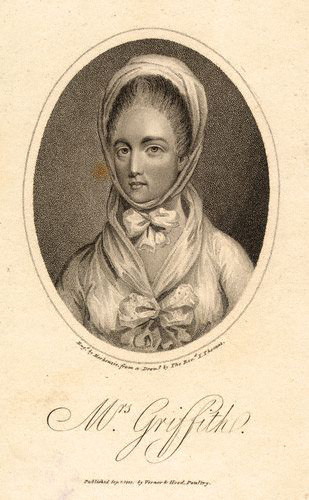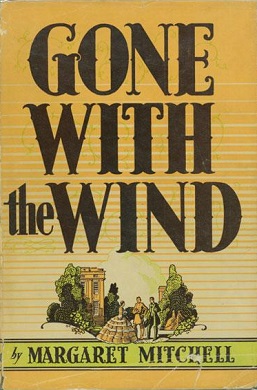The first part of this countdown is here.
If you are interested in seeing what I read this year my traditional listchallenges list is here. If you want to see me trying to shame myself for buying books, my list of shame is here.
So, in this year of reading women, let's see what the top five books were.
5: The Wonderful Adventures of Mrs Seacole in Many Lands by Mary Seacole
I’ve already written about this book here, but it must be stressed what an engaging voice Mary Seacole has and what interesting positions she finds herself in.
4: Vera by Elizabeth Von Arnim
Of course Von Arnim was going to appear on this list, she’d rapidly becoming one of my favourite authors.
Having adored Elizabeth and her German Garden and been enchanted by The Enchanted April, I asked for more Elizabeth Von Arnim books so I could be uplifted by their ebullience and delight. I received Vera. Instead of a sunny, funny story of joy, it’s a taut psychological thriller written as a comedy of manners. Elizabeth and her German Garden had a portrait of her first husband as ‘The Man of Wrath’, but it was a peculiarly affectionate portrayal. There’s nothing affectionate about the portrayal of her second husband in the character of Everard Wemyss.
Lucy Enthwhistle meets Everard Wemyss on the day her beloved father has suddenly died. She’s still numb in her grief and so politely listens to his tale of woe, his wife had died the week before after falling out of a third story window but the inquest recorded an open verdict. We already know all we need to know about him, his sadness is not from his wife’s death but from his losing face at the inquest and being obliged to leave town for a while. However, I didn’t fully pick up on this yet.. nor for a while.
The courtship of Everard and Lucy does seem strange, and he in particular seems rather gauche, especially in company. Lucy’s aunt Dot has her misgivings, and there are further hints of Everard’s character from how she is beloved or an utter nuisance depending solely on how easy she makes it for Everard to get his own way.
Further red-flags are raised by the way in which Everard obsesses over Lucy’s height, youthfulness and particularly her bobbed hair. He delights in the fact that her particular haircut means that she could look as young as twelve. When his physical babying of her, taking him in his arms, rocking her and calling her his ‘baby’ - and warning signs are flying around. (Incidentally, she had that haircut at her father’s request, who obviously liked her to still look like his little girl, and he obviously infantilised her also in the way he never expected her to keep up with his conversation. Was their relationship ever that healthy in the first place?)
Despite the warnings, the tone of the book informs us not to be too worried. It’s told as a comedy of manners, we laugh at Everard’s absurdities and we expect things to work out fine in the end. Even Auntie Dot convinces herself that all shall be fine as they go off in a taxi to their honeymoon.
This is when we find out that things shall not be fine. Lucy’s chance remark that she’s been exhausted since her marriage and feels she has no space to be herself is chilling. Everard’s ‘wholesome’, ‘uncomplicated’ and ‘simple’ ways become horridly controlling. Most heartbreaking of all is that he has power over Lucy because she loves him and doesn’t want him upset. He can use this upset and a whole panapoly of sulks and tantrums to get his own way. It’s not just seeing her dominated, it’s seeing her dominated by someone so weak and petty that is the true horror. Yet the comic tone doesn’t ease, we are still encouraged to laugh at Everard’s pathetic nature just as we fear it. It’s a wonderful and gripping tight-walk.
When the couple return from honeymoon, it’s clear how little he loves Lucy, even if he thinks he does. She is an interchangeable ‘wife’ figure and she must now slot into place in the vacant ‘wife’ slot once filled by Vera. When we were first introduced to Vera, we were told she was a stupid, thoughtless woman who didn’t know what was best for her. All indications suggest she was intelligent and independent with a love of music and travel and she was worn down by Everard.. and Lucy seems to be going down that path much faster than Vera ever did.
The book ends before any grand tragedy or heroic rescue. I’ve seen some readers think it a hopeful end, with the seeds of escape sown. I personally see it as a tragic one, Lucy still makes excuses for the man she thinks loves her, she is deep down the rabbit hole and I don’t think will escape. I think she’ll simply waste away. The book gives the kindness to not make that certain.
This book gripped and incensed me, made me laugh and gasp, It’s as inescapable as the other two works I’ve read by Elizabeth Von Arnim but in a completely different way. I loved it.
3: Abigail by Magda Szabó
Magda Szabó was one of my favourite authors I discovered this year. While I enjoyed all the books I could find of hers, Abigail was easily the best.
When Gina is suddenly torn from her old life as a schoolgirl in 1940s Budapest, she finds herself on the far eastern edge of Hungary, deposited in a strict school. She doesn’t know why and she resents her move, finding the traditions of the schoolgirls as silly as the rules of the adults. What on the surface felt like a children’s book, a little like The Secret Garden or a Malory Towers novel becomes a more in-depth exploration of the benefits and dangers of conformity.
The Matula is not an evil school, it’s not a Lowood Academy, the clothes are well made, there’s lots of food (though oddly, not those extensive descriptions of feasts we get in school stories right up to Harry Potter), there’s very strict discipline but not abuse. The teachers are not evil, in-fact, more often than not they have their own issues to deal with, some of which are noticed by the girls and some isn’t.
Within the community, Gina resists against the girls and refuses to ‘marry’ an object in the class. Their ostracism, though a staple of these kinds of books serves to show how conformity comes from pressure from within as well as out. When Gina succumbs to it she can be happier in the institution, and safer from the outside world, where conforming to the lie that Hungary’s war is going well is starting to have deadly implications.
The Abigail of the title is a statue that helps pupils when in need and, becomes the secret voice of the resistance, sending warnings about Hungary’s increasing precariousness as Nazi Germany’s weak partner and providing documents to save a number of children with Jewish heritage. The mystery at the centre of the book is, who’s Abigail.
I’d love to have read this as a teenager, as Gina and her classmates read the people around them based on their own limited experiences. Gina is essentially wrong about nearly everyone around her and to my viewpoint, these errors were obvious but I wonder how much they would have been to a teenage me.
I was gripped throughout, lost in both the children’s book world of the Matula school and the adult realities just outside. I loved how both areas interacted with each other and were interpreted through Gina’s own (often small-minded and slightly selfish) perspective. This did not make Gina a dislikeable character, only a real one in the context of the story and I loved the other characters, both in the simplistic ways Gina saw them and the more complicated ways implied beyond her own point of view.
2: The Waves by Virginia Woolf (I could also have put To the Lighthouse here and Mrs Dalloway not far off)
The Waves bowled me over with its warmth, the understanding of character and the literary description of the forming of people’s identity and the passing of their lives.
Framed by a description of a sun rising above a seaside setting, each part showing the quality of the light on the objects as it reached its zenith and then began to set. It was a tidy image of a life lived, the haze and indistinct nature of personality at first; the clarity as the sun rises till at midday, things are almost fixed in place by light and then the muzzy haziness as the sun begins to set. It worked very well as a metaphor and to tell us which part of life we were now going to explore. Some of the details of these parts repeated a little but it served it’s purpose well.
At first the six characters had single lines, representing their smaller senses of self, then each began to have short paragraphs. As the book went on, the characters would have longer monologues to themselves, their own issues and images that haunted them and that they kept returning to, either to go beyond or be defeated by it. Early on, the style seems strange. The sentences are short, there’s a ‘see spot run’ element to them but the sentences develop as the characters do.
Another strange part is that the monologues all start; “something something,” said someone - even when they never said it. Even if it was something they did say, it was never expressed in the way they would naturally say it. This isn’t stream-of-consciousness in any straightforward way, like To the Lighthouse, the consciousness is reported but in a way that is even more detached from reality. It takes a little acclimatising.
Of the six, Bernard was my favourite. As a child he finds power in ‘spinning phrases’, like all the men in the book he develops a desire to write. He fills a notebook up with his phrases but never uses them to make the book. His desire to spin phrases becomes making stories, he can’t see a person without inventing a story for them, again he plans to use these in a writing way but never quite does. As he ages, he sees his stories as a way he tries to connect with the world but also a thing that places him at a remove from it, he can’t help adding an artificiality. By the end, he says he is over stories and phrases, he leaves his notebook behind, he says he’s done with it all and ready to immerse himself fully in life without the protection and use of words. I didn’t believe him for a second as he gave up words in a twenty-page monologue in which he used all the phrases he’d collected. He hadn’t given up words at all, he’d just run out.
My least favourite character was Neville, the one of the three men who actually becomes a writer. He starts of clean and fastidious, it becomes clear he is gay and he loved Percival.. then he loves various men one at a time. I didn’t like him because as a child and young man he seemed to hate everyone around him and feel he was better and I never could see why he would think that. I felt sorry for Louis with the constant chip on his shoulder. I also felt sorry for Rhoda who connected with the world so little she ended up throwing herself off a rock.
Jinny lived in and for her body, which worked for her but as a clumsy uggo, would never work for me and Susan started off as a creature of hate who subsumed herself first as a countrywoman, then as a mother, a choice she seems to regret.
This book was full of wonderful little details; a statue that pigeons whiten, some overheard gossip that lingers for years, a shining moment by the river. It also showed what it’s like when friends get together, the way the different entities mix together at those times, their monologues becoming shorter and beginning to answer each other. It really did feel the way it feels when friends get together.
It also made me think about my life, the moments that have formed my sense of self, what my sense of self actually is. There’s a depth and richness to The Waves that I haven’t found many other places, a real summation of life, a real evocation of those private moments in private mythology. It really captured a sense of being and a sense of friendship and I really loved it.
And my favourite book of the year was…
1: Nights at the Circus by Angela Carter
I was blown away by Nights at the Circus. This book is an assault on the senses; on they eye, the ear and the nose - full of noise and smell and texture, with an overabundance of telling details and bulging with strange tricks of point-of view, narrative perspective and general writerly trickiness which at no point seemed false or stretched but more like the book was trying to rein in its exuberant explosion of words.
The first section is probably the best. Fevvers, a trapeze artist who claims she was genuine, functional wings is recounting her life story to the journalist Jack Walser. She’s being aided, challenged, interrupted and looked-after by her friend/mother-figure Lizzie throughout. We have the cluttered, clustered atmosphere of the dressing room and lead into the fantastical, cluttered story of her life, which she narrates in a mixture of stage-cockney and rotund oratory. She’s instantly engaging and, for an arial being, is very earthy. She is highlighted eating greasy food with gusto, her feet smell, she belches and raises a cheek from the seat to fart. She reminds me a lot of the characterisation of Falstaff in the Robert Nye novel.
Her life, as she tells it, is a picaresque tale with many outlandish yet specific details. There’s a wholesome brothel where all of the prostitutes spend their time in sisterly harmony and improving themselves. Next, a freak-show ran by a woman who may actually be dead that includes women with working eyes on their nipples or a woman who’s story is ripped from Thumbelina. That’s followed by a tussle with a nerdy magician. The language and characters have all the gaudy colour of the circus, yet there are also moments of grounding grit and dirt. The reader is won over by it all, and although the reporter wonders if the story is true or not, I can’t say that I cared, I was enjoying myself too much.
The beginning of the second part in St Petersburg broke the spell a little, opening with a description of a woman pumping the bellows of a samovar that used a metaphor which stretched a little too far and over two pages. This is followed by one of the most jarring breaks of perspective in the book, where the ‘writer’ breaks in to talk about how Russia is shortly to have a revolution and this knowledge colours the world of St Petersburg in the story. Now I was alert to games in the point-of-view that I had previously been swept up by. The curtain of fiction was dropped just a little too low. Luckily, we are then introduced to a psychic pig and are brought back into the story. Though I am beginning to notice how skilfully and subtly Angela Carter weaves in and out of tenses, something I only stop noticing once the story fully engages me again.
Walser has become a clown so he can follow Fevvers. This part of the book is more of an ensemble piece, Fevvers has moments but it’s not all about her. We learn the story of Mignon, a poor abused young woman who becomes a singing lesbian lion tamer. We also learn about the strong-man’s lifetime of spiritual weakness. The clowns and their clown culture which is claustrophobic and nasty and nightmarish. The king of the clowns, Buffo, has a ‘deranged majesty’, the clowns themselves are always on the edge of madness and insanity and I have never come so close to understanding fear of clowns (instead of mild disdain) as when hanging out with the clowns in this book. This is also the part of the book which has a fondness for animals acting like people. Whether it’s the chimpanzee act, who are among the more sensible characters in the circus, or the tigers who dance waltzes and grow savage if they feel their romantic attentions snubbed.
The third part takes place in Siberia and is most noticeable for how the story is now in Fevvers’s first person and an omniscient third person, slipping in between the two. It’s mainly about how she finds herself having lost elements that defined her identity and languishes and how Walser has a completely new identity made for him but re-finds his old self making a new self from the two parts.
It’s a book that would take a long time to unpack properly. There are impossibilities and weird twists and jokes that could be read many ways and all of it delivered in this constantly shifting voice filled with a voluptuous excess of language. It’d definitely be a book to read a number of times just to see how it works but what I can say after one reading is that it does work, and it does so brilliantly.














